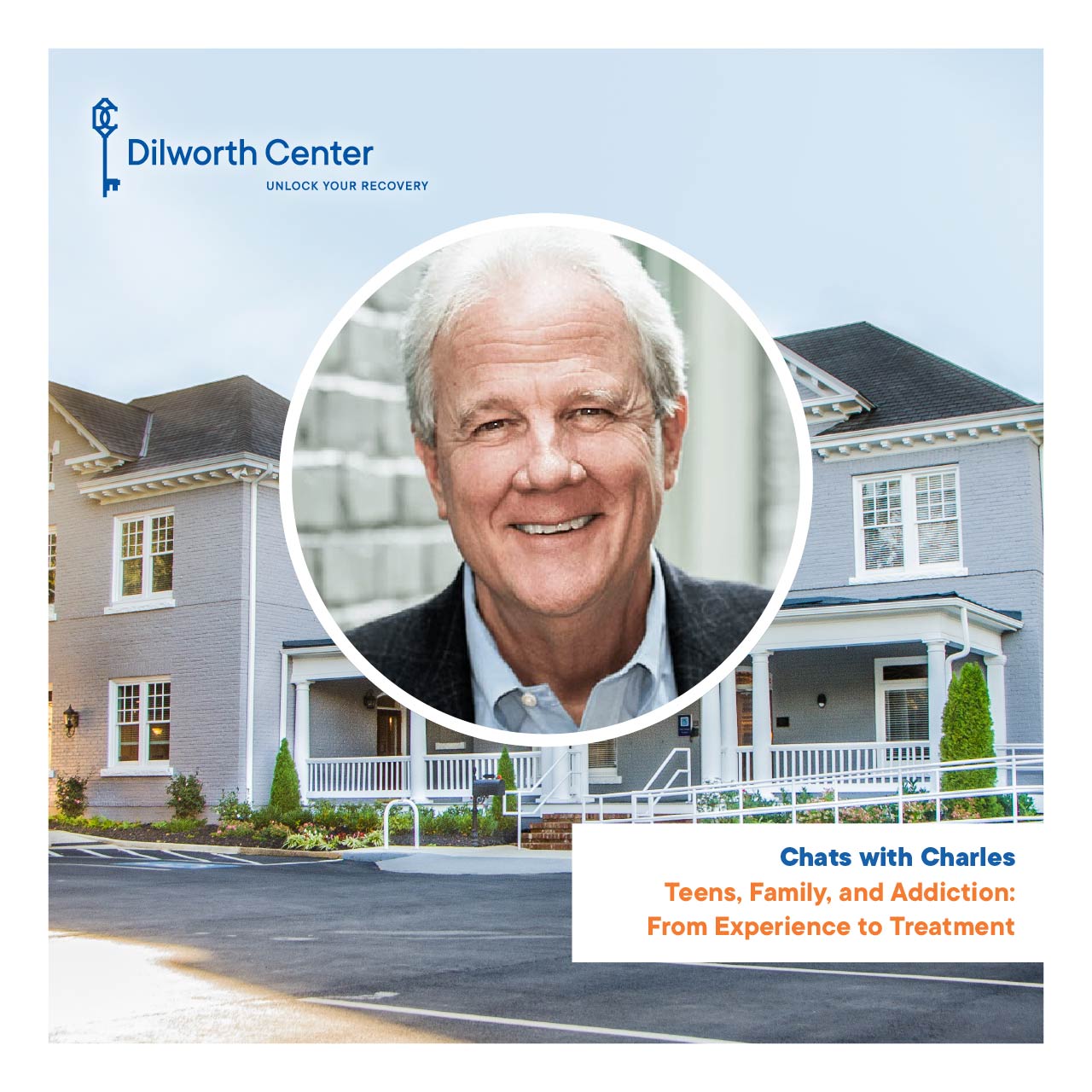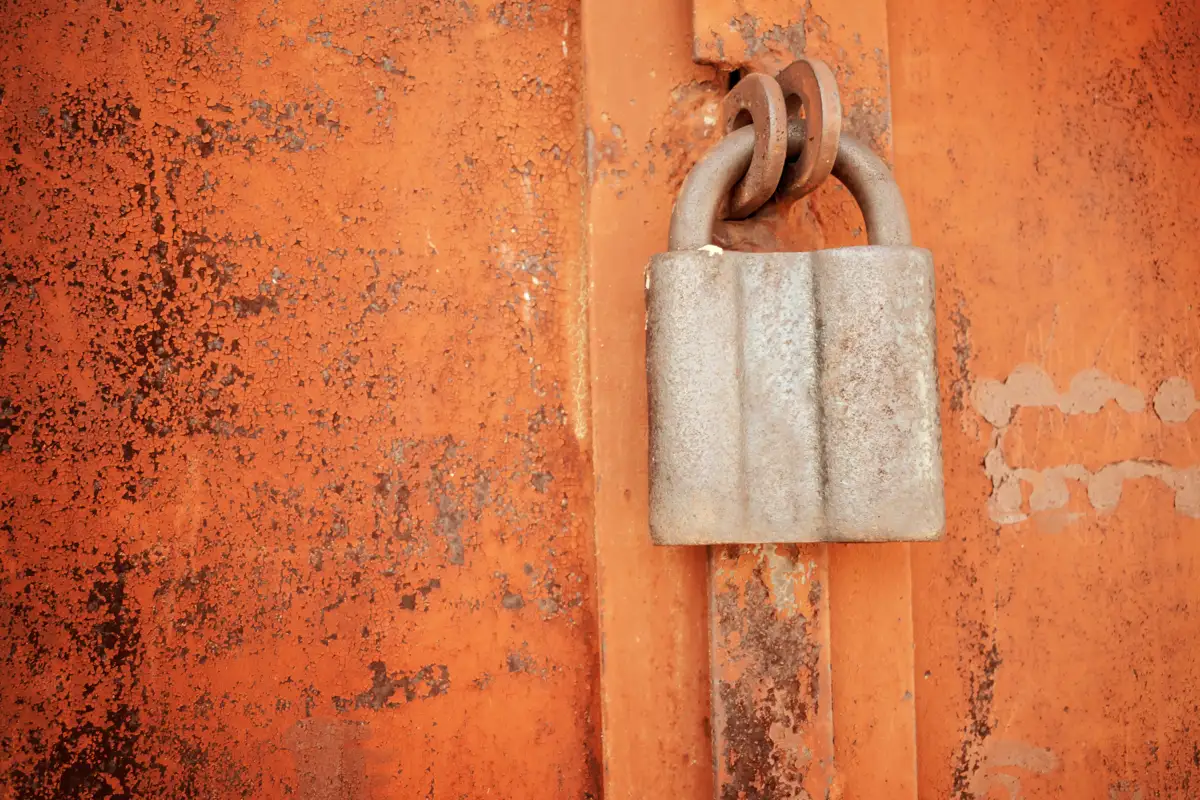Chats with Charles: Teens, Family, and Addiction
Click here to view the video! https://youtu.be/hubQoD_o6ro
Please join us for the latest Chats With Charles, all about Charles' experience as a teen suffering from addiction, how family affected him, and how Dilworth Center is prepared to help teens, and bring families back together from the horrors of alcoholism and addiction. Transcript follows: Hey, I want to welcome everybody. My name is Charles O'Dell. I'm the chief executive officer and president of Dilworth Center. I'm joining you today in what we call a chat with Charles. It's my way of letting everybody know a little bit about what's going on here at Dilworth Center. We just celebrated July 4th, Independence Day, and whenever we go through that holiday, it reminds me of my early recovery. Independence.
I got sober back in 1982, and when I did, I was a pretty young guy. I experienced a lot of what we see our adolescent patients going through these days. It was difficult for me at first. If my parents were here, they would tell you that they often did all the wrong things because they loved me. If I got in trouble, they came to my assistance and bailed me out. My mom didn't know anything about Al-Anon. She didn't know there was a support system out there for folks who might be struggling with this. My addiction progressed very rapidly and began to affect every area of my life. I used to be an A student, but I started failing all my classes. I had a really good peer group of people I grew up with, but I didn't hang out with them anymore. I was hanging out with people who wanted to do the drugs and the alcohol that I was doing. Everything began to change. I began to isolate more from my parents, and my sleeping patterns were disrupted. I got into a lot of money problems. I was always asking my parents for more money, and I even progressed to stealing.
Things began to get worse very rapidly as I entered my 20s, and I found myself needing some type of assistance. My mother and a pediatrician here in Charlotte by the name of Johnny McLeod got me into a treatment center. I didn't really want to go to treatment. I went because the pain of continuing to do what I had been doing was worse than the pain of getting into a treatment program. I've heard people say, "Well, you've got to want it." In my case, that wasn't true. I was willing to do it, but I didn't really want it. I don't think my story is unique.
I got into a treatment program, and one of the first things I realized was that I needed a new group of friends. I started going to recovery meetings and met people closer to my own age. We started doing things together socially while also attending recovery meetings and getting involved with being reconnected with people. I've heard for many years, and I believe this to be true, that alcoholism and drug addiction are diseases of isolation. We get cut off emotionally from other people, and we're full of secrets. It begins to be this inward journey peppered with guilt, shame, remorse, and resentment. It's just a terrible way to live. Getting into recovery and getting reconnected with other people allowed me to begin to share some of that stuff and get it off my chest.
I knew a lot of people my age who were suffering from depression and anxiety as well. These folks benefited greatly from getting proper care for that in addition to their addiction. I never had a real problem with depression or anxiety, but a lot of my friends did, and they got the help they needed through psychiatric care and counseling here at Dilworth Center. We opened up an adolescent program many years ago. A lot of it had to do with my own desire to make sure that people could have the opportunity to recover when they were the age I was when I got into recovery. When a treatment center operates for teens, adolescents, and young adults, they need to meet the requirements of that particular age group. It's different than getting into a treatment program with adults.
Our medical director is board-certified in addiction psychiatry and is capable of seeing all of our patients here, including our young adults and teens. We want to make sure that people are properly treated not just for their addiction but for any mental health care concerns that may be present. We're very committed to that. Through the years, Dilworth Center has treated somewhere north of 20,000 people. Many of these have been teens and young adults, and many of them are sober today. Of course, they're not teens or young adults anymore. They've got gray hair, but that's okay. You get gray hair by not drinking and not dying. Recovery works. Treatment works, assuming it's good treatment, and we are committed to providing the best treatment you can possibly find anywhere. I'm personally committed to that. Thank you all for checking out this video today. I hope to talk to you soon. -- Charles Odell, CEO and President, Dilworth Center
If you are a parent struggling with your teen's mental health and potential substance use, or a teen facing these challenges alone, please reach out to us. We're here to help: 704.372.6969










